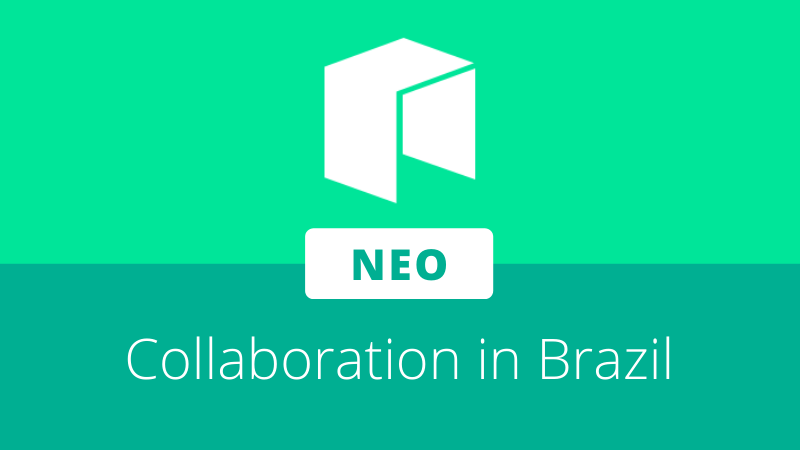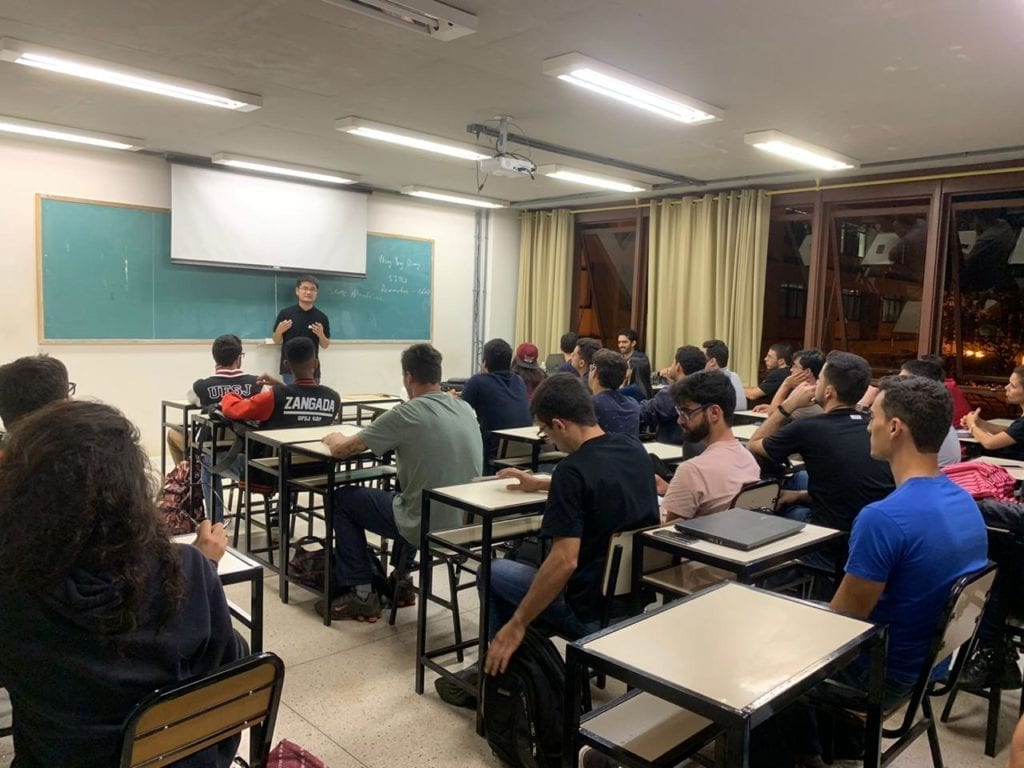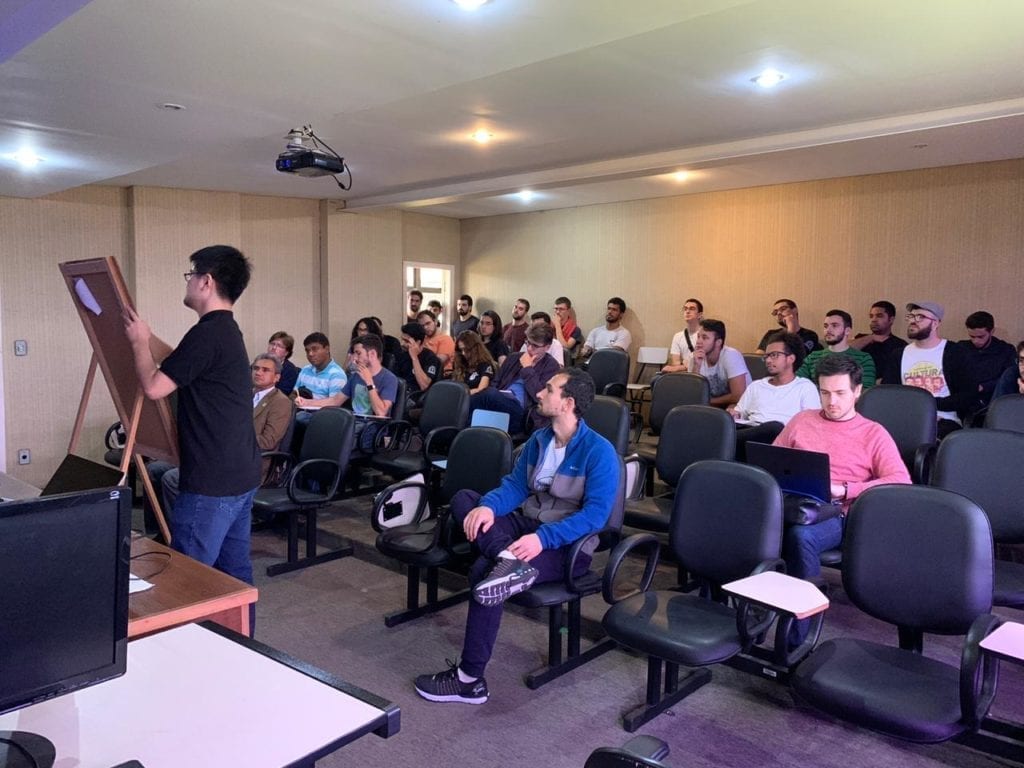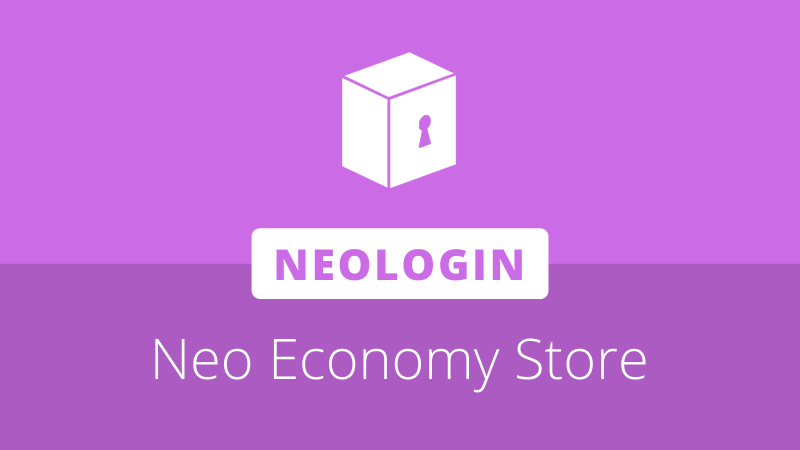
Wang Yongqiang, a researcher from Neo Global Development (NGD) Shanghai, recently travelled to Brazil to visit and present alongside members of the NeoResearch community at two Brazilian universities. Wang Yongqiang spends his time at NGD working on future technical improvements for Neo, with a current focus on improving the governance and economic models for Neo3.
Better known in the Neo developer community by his nickname Alibaba, Wang Yongqiang has deep experience in the fields of blockchain, networking, multimedia codecs, and fundamental mathematical theories.
Before joining NGD Shanghai, Wang Yongqiang worked as a developer for cloud services under the Alibaba group, and developed machine vision algorithms for Yitu Tech, a Chinese R&D firm focused on researching applications of AI technology.
Presentations with NeoResearch
On November 13th, Wang Yongqiang presented a lecture at the Federal University of São João del-Rei alongside Vitor Nazário Coelho of NeoResearch. Lasting two hours, the lecture focused on distributed ledger technology and smart contracts, concluding with questions from the students.
The second presentation was held as part of the Flash Blockchain Meetup on November 19th, hosted in the Department of Control and Automation Engineering at the Federal University of Ouro Preto.
After providing an introduction to blockchain and distributed ledger technology in general, this presentation also covered topics including hardware wallets, existing payment infrastructure such as WePay and AliPay, and more abstract concepts such as Internet-of-Things (IoT) and Internet-of-Value (IoV).
Research Topics at NGD
In his role at NGD Shanghai, Wang Yongqiang investigates potential changes to fundamental systems in Neo, including the governance and election processes, the voting mechanism, and economic model.
During a conversation with Neo News Today, Wang Yongqiang highlighted the current inaccessibility of the voting process on Neo:
“Currently, people other than Neo Foundation don’t vote on the Neo network because of the voting mechanism. To make it more secure and achieve decentralization, we need to improve the mechanism to encourage people with NEO to take more responsibility in maintaining the network.”
Wang Yongqiang added that during his time in Brazil, discussions were held with members of NeoResearch in how to further improve the dBFT consensus mechanism. While looking for optimizations and improvements for the next version, dBFT 3.0, the mechanism’s structure was divided into three key components: the consensus layer, governance layer, and an incentive layer. Wang Yongqiang explains:
“The consensus layer is the BFT-based consensus algorithm itself. The governance layer is responsible for decentralized group decisions over key parameters of the consensus layer, such as the number of consensus nodes or election process. Finally, the incentive layer is designed to incentivize good behaviour by NEO holders who participate in the governance of the network.”
By providing an economic model with rewards for beneficial actions on the Neo network, NGD hopes to improve the blockchain’s security through decentralization. Wang Yongqiang expects that this incentive model will also help improve upon the existing dual token model used by Neo.









About The Author: Brett Rhodes
Brett is a blockchain enthusiast and freelance writer who originally began producing content for the gaming & eSports industries. Now he spends most of his time contributing in the Neo ecosystem.
More posts by Brett Rhodes